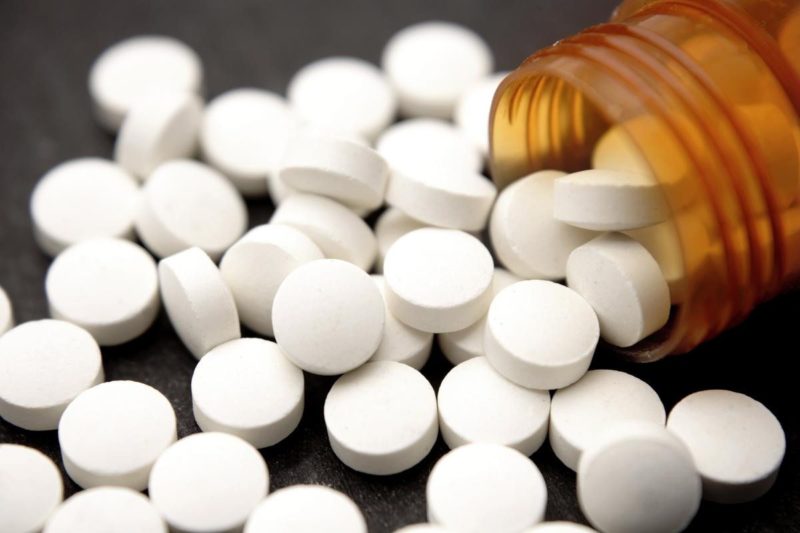New Jersey Democrats: Harshen Drug Use Penalties—But Only for Pregnant People
Advocates say the bill’s language is “blatantly discriminatory” toward pregnant people, and will deter them from seeking prenatal care and drug treatment.

A bill pre-filed in the New Jersey state legislature would criminalize the “use [of] a controlled dangerous substance or prescription drug while pregnant,” upgrading the offense from a misdemeanor to a felony for pregnant people.
Sponsored by a trio of Democratic Assembly members—Bob Andrzejczak (Atlantic/Cape May/Cumberland), Joseph A. Lagana (Bergen and Passaic), and R. Bruce Land (Atlantic/Cape May/Cumberland)—AB 774 would amend a law concerning controlled substances and certain prescription drugs. The proposed measure states that a person who is found to be under the influence of these substances “for a purpose other than the treatment of sickness or injury as lawfully prescribed or administered by a physician is a disorderly person unless the person is pregnant during the commission of the offense, in which case it is a crime of the fourth degree.”
In New Jersey law, a felony is referred to as a “crime” and a crime of the fourth degree is punishable by a prison term of up to 18 months, a fine of up to $10,000, or both, while a misdemeanor is called a “disorderly person offense,” which carries a possible term of imprisonment of up to six months, or up to a $1,000 fine.
Advocates say the bill’s language is “blatantly discriminatory” toward pregnant people, and will deter them from seeking prenatal care and drug treatment.
“My concern about this type of law is that it sets up a situation in which prosecutors get to decide who gets health care and who gets handcuffs,” Farah Diaz-Tello, senior staff attorney with the National Advocates for Pregnant Women, told Rewire in a phone interview. “This is one of the most resoundingly discriminatory statements we’ve ever seen.”
Diaz-Tello also said the bill, if passed, would “certainly fall most heavily on low-income women and women of color. People who don’t have access to private health care or private treatment for substance use are the ones who are going to get turned over to police.”
“Those who have the money and privilege to receive the type of care that will absolutely protect their confidentiality aren’t going to have to worry about the law, which is really about controlling certain groups of people,” she added.
Roseanne Scotti, the Drug Policy Alliance’s state director for New Jersey, said the bill raises concerns in a state like New Jersey where, by some estimates, “half the adults seeking drug treatment can’t get it because we simply don’t fund it at the level to create adequate access.”
Scotti explained in a phone interview with Rewire that the state does not properly track the number of people in need of drug treatment, yet it continues to incarcerate residents for drug use, and put up barriers for those seeking care, particularly those from marginalized communities.
“Finding drug treatment is particularly challenging for women in general, and low-income women of color in particular, because they often have families, [and] may have other children who they are the primary caretakers for,” Scotti said. “Many drug treatment centers won’t even take in a pregnant woman, and certainly won’t take in a woman with children, and so women end up having to fend for themselves. The way to address this issue is to remove these barriers, not criminalize pregnant women.”
Both Scotti and Diaz-Tello suggested that the proposed bill likely will not go far.
“This is a very unusual bill,” Diaz-Tello explained, adding that, unlike the largely GOP-sponsored attempt to criminalize pregnant people and curtail reproductive autonomy nationwide, many of this legislation’s co-sponsors are Democrats. “One of them, Assembly member Valerie Vainieri Huttle, recently sponsored New Jersey’s anti-shackling bill and … has [pushed] for protections for breastfeeding parents and a Maternity Care Report Card that requires reporting of cesarean and vaginal birth rates at the hospital level—so I have high hopes that when people like her see the pushback they’re going to get from the medical and public health community, they’re going to re-think their strategy.”
Diaz-Tello said the bill is likely based on the “misguided” notion that “some level of criminalization pushes people to get help through court-mandated drug treatment programs or other such measures.”
She said that approach is not borne out by medical research. Diaz-Tello pointed to statements by prominent voices within the health community, including the American Medical Association and the American Congress of Obstetricians and Gynecologists, that make clear pregnant patients tend to avoid seeking necessary prenatal care if they believe a health-care provider’s knowledge of their substance dependency, or other potentially harmful behaviors, could lead to jail sentences.
Scotti said she is hopeful that pressure from advocates will “prevent the bill from going anywhere.”
“But you never can tell—sometimes, things move when you don’t expect them to. If this does happen, it will certainly make women even more fearful and reluctant to seek prenatal care or drug treatment,” she said.

